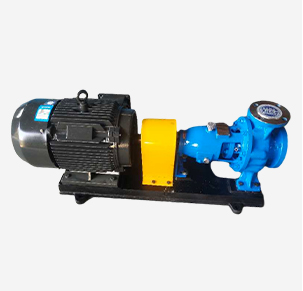Malayalam
- Afrikaans
- Albanian
- Amharic
- Arabic
- Armenian
- Azerbaijani
- Basque
- Belarusian
- Bengali
- Bosnian
- Bulgarian
- Catalan
- Cebuano
- Corsican
- Croatian
- Czech
- Danish
- Dutch
- English
- Esperanto
- Estonian
- Finnish
- French
- Frisian
- Galician
- Georgian
- German
- Greek
- Gujarati
- Haitian Creole
- hausa
- hawaiian
- Hebrew
- Hindi
- Miao
- Hungarian
- Icelandic
- igbo
- Indonesian
- irish
- Italian
- Japanese
- Javanese
- Kannada
- kazakh
- Khmer
- Rwandese
- Korean
- Kurdish
- Kyrgyz
- Lao
- Latin
- Latvian
- Lithuanian
- Luxembourgish
- Macedonian
- Malgashi
- Malay
- Malayalam
- Maltese
- Maori
- Marathi
- Mongolian
- Myanmar
- Nepali
- Norwegian
- Norwegian
- Occitan
- Pashto
- Persian
- Polish
- Portuguese
- Punjabi
- Romanian
- Russian
- Samoan
- Scottish Gaelic
- Serbian
- Sesotho
- Shona
- Sindhi
- Sinhala
- Slovak
- Slovenian
- Somali
- Spanish
- Sundanese
- Swahili
- Swedish
- Tagalog
- Tajik
- Tamil
- Tatar
- Telugu
- Thai
- Turkish
- Turkmen
- Ukrainian
- Urdu
- Uighur
- Uzbek
- Vietnamese
- Welsh
- Bantu
- Yiddish
- Yoruba
- Zulu
Telephone: +86 13120555503
Email: frank@cypump.com
ഡിസം . 03, 2024 18:35 Back to list
'cost of an ejector pump and associated expenses for ...'
Understanding the Cost of an Ejector Pump and Associated Expenses
Ejector pumps, or sewage ejector pumps, are essential components in the field of plumbing, particularly in situations where wastewater needs to be transported from lower elevations to higher ones. These pumps are commonly used in basements, sewage systems, and places where gravity alone cannot effectively move water. While the primary purpose of an ejector pump is to facilitate the removal of wastewater, understanding their costs and associated expenses is crucial for anyone considering installation or maintenance.
Initial Purchase Cost
The first significant expense associated with an ejector pump is the initial purchase price. Depending on the brand, model, and specifications, the cost can vary widely. Entry-level pumps may start around $200, while more robust and efficient models can exceed $1,000. When selecting a pump, it is vital to consider the capacity needed, as pumps are rated based on their horsepower (HP) and the volume of wastewater they can handle. Investing in a more powerful model may incur a higher upfront cost but can lead to savings in the long run through increased efficiency and fewer maintenance issues.
Installation Expenses
After purchasing an ejector pump, installation is the next significant expense that homeowners must consider. If the installation is straightforward and does not require extensive plumbing modifications, costs may range from $300 to $600. However, if additional piping, electrical work, or structural modifications are needed, installation costs can skyrocket, reaching upwards of $1,500 or more. Hiring a licensed plumber or contractor is recommended to ensure compliance with local building codes and to guarantee a secure and effective installation.
Maintenance and Operational Costs
Once the ejector pump is installed, ongoing maintenance and operational costs come into play. Regular maintenance is essential to keep the pump running efficiently and prolong its lifespan. Maintenance tasks may include checking for clogs, inspecting the electrical components, and ensuring that the float switch is functioning properly. Homeowners should budget around $100 to $300 annually for routine maintenance, depending on the frequency of service and specific requirements of the pump.
'cost of an ejector pump and associated expenses for ...'

Additionally, the operational costs associated with electricity usage can vary. Ejector pumps typically consume between 5 to 15 amps, depending on their size and efficiency. This energy consumption can lead to a noticeable increase in the electricity bill, particularly in households where the pump is frequently engaged. On average, the cost of running an ejector pump could range from $10 to $30 per month, depending on local electricity rates and usage patterns.
Potential Repair Costs
In the unfortunate event of a pump malfunction, repair costs can add another layer of financial consideration. Common problems may include electrical failures, float switch issues, or pump blockage. Repairing these issues can cost anywhere from $100 to $500, with more severe damage potentially leading to replacement. It is wise to consider a warranty or service plan when purchasing an ejector pump, as this can help mitigate unexpected repair expenses.
Long-term Considerations
When evaluating the overall cost of an ejector pump and its associated expenses, it’s crucial to take a long-term perspective. While upfront costs may seem daunting, the investment in a high-quality pump, proper installation, and regular maintenance can lead to significant savings over time. Opting for a reliable and efficient pump can minimize energy consumption, reduce the likelihood of repairs, and ensure a consistent and trouble-free operation.
Conclusion
In summary, the cost of an ejector pump involves various factors, including the initial purchase price, installation charges, ongoing maintenance, operational costs, and potential repairs. Homeowners should carefully consider these expenses when planning for wastewater management in their properties. By investing wisely and maintaining the system diligently, a property owner can enjoy the benefits of an ejector pump while minimizing long-term costs and ensuring reliable performance.
-
Custom Drilling Mud and Slurry Pump Supplier - High Efficiency, Tailored Solutions
NewsJun.10,2025
-
Supply Vertical Submersible Sewage Pump High-Efficiency WQ/QW Pumps Supplier
NewsJun.10,2025
-
Premium Sewage Ejection System & Pumps Efficient Waste Removal
NewsJun.09,2025
-
Premium Wholesale Slurry Pump Impellers Durable & Efficient Slurry Handling
NewsJun.09,2025
-
Top Sewage Pump Companies Durable Industrial Solutions for Efficiency
NewsJun.09,2025
-
Heavy Duty Slurry Pumps - OEM High Performance & Bulk Wholesale
NewsJun.09,2025










